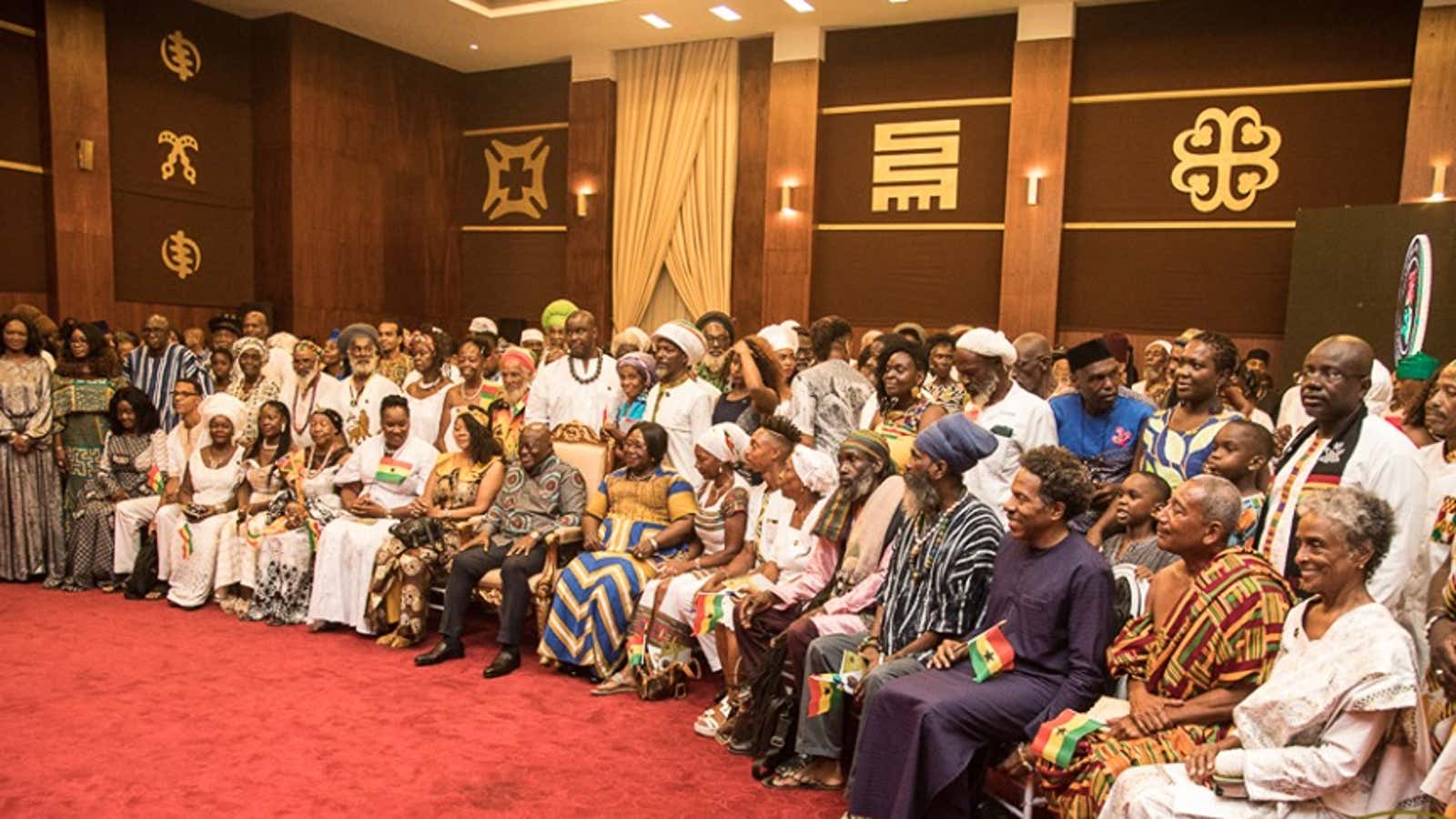As Osibisa’s “Welcome Home” played in the background, 126 African-Americans and Afro-Caribbeans, dressed in colorful traditional costumes, became Ghana’s newest citizens.
The oath of allegiance was administered by a judge in a ceremony at Jubilee House, the seat of government. The ceremony is the biggest highlight as Ghana marks 2019 as the Year of Return. One after the other, the new citizens took turns to shake hands with their president and went on to collect their citizenship certificates.
“On behalf of the government and people of Ghana, I congratulate you once again on resuming your identity as Ghanaians,” President Nana Akufo-Addo said in a speech on Wednesday, Nov. 27.
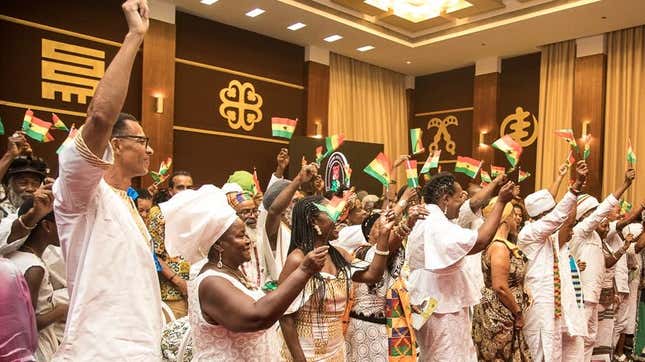
This year marks 400 years since the anchoring of an English ship in Jamestown, Virginia in the United States carrying a small group of enslaved Africans. While Africans had been in other parts of the Americas region (including the present-day United States) before 1619, that year is widely regarded as the commencement of the slave trade in the US.
As Quartz Africa has previously reported, throughout 2019, Ghana has been hosting a raft of activities, at home and abroad, to encourage the descendants of those who were forcibly sent away to return. In June, the president embarked on a five-nation tour of the Caribbean to promote the initiative.
“We recognize our unique position as the location for 75% of the slave dungeons built on the west coast of Africa through which the slaves were transported. That is why we had a responsibility to extend the hand of welcome, back home to Africans in the diaspora,” the president added in his speech.
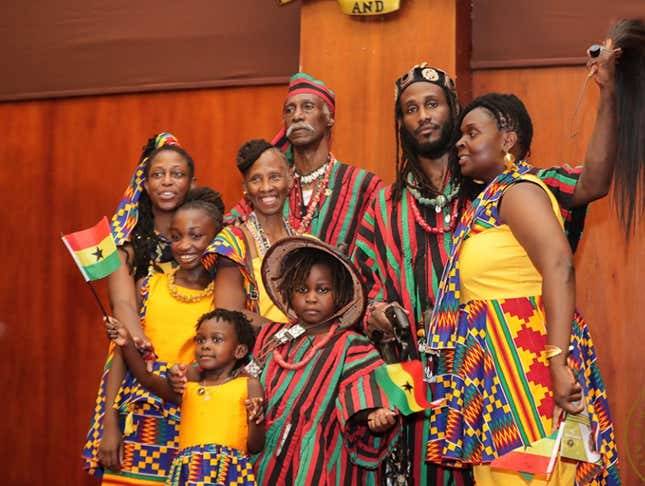
“The most valuable possession that was taken away from us was our identity and our connection; it was like severing the umbilical cord… But tonight, our identity, the dignity, the pride that has been absent is restored here,” Rabbi Kohain, who spoke on behalf of the new citizens said.
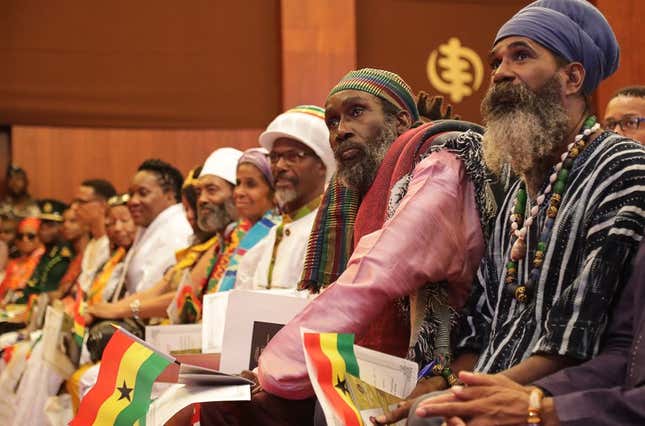
This is not the first time Ghana has given citizenship to diasporan Africans who have established residency. In one of his last acts in office, former president John Mahama witnessed a naturalization ceremony ‘restoring’ citizenship to 34 diasporan Africans in December 2016.
The idea of a homecoming of “our brothers and sisters” who were taken away is one that Ghana has long fancied and championed. Right from the founding of the modern nation in 1957, early Ghanaian leaders led by the first president Kwame Nkrumah preached Pan-Africanism, one that transcended the shores of continental Africa.
The granting of citizenships give an added force to the country’s Right of Abode law which was passed in 2001. That law gives anybody of African ancestry in the Americas, the right to stay in Ghana indefinitely.
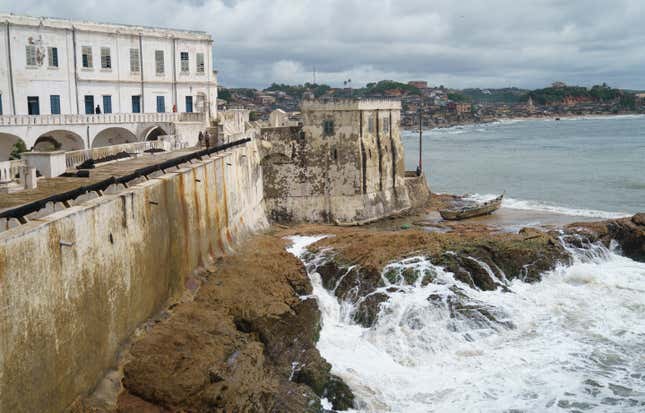
Aside from sentimental reasons, the return of the African diaspora is economically pragmatic for Ghana. Earlier this year, the government waived visa requirements for some countries and slashed the cost of a visa on arrival in half in hopes that heritage tourism will bring in much-needed revenue.
About 500,000 tourists are expected to visit Ghana during the Year of Return; up from the 380,000 that visited in 2018. Businesses are eagerly anticipating an influx of visitors over the festive season with the Afro Nation and Afrochella festivals expected to attract thousands of young diasporan Africans. In the US this year, Ghana has been heralded as a major end-of-year vacation destination among some African American celebrities, black college alumni organizations and similar groups.
The government is also not losing sight of the investment potential and human capital of the highly educated “returnees” who decide to permanently move to Ghana.
Sign up to the Quartz Africa Weekly Brief here for news and analysis on African business, tech and innovation in your inbox
